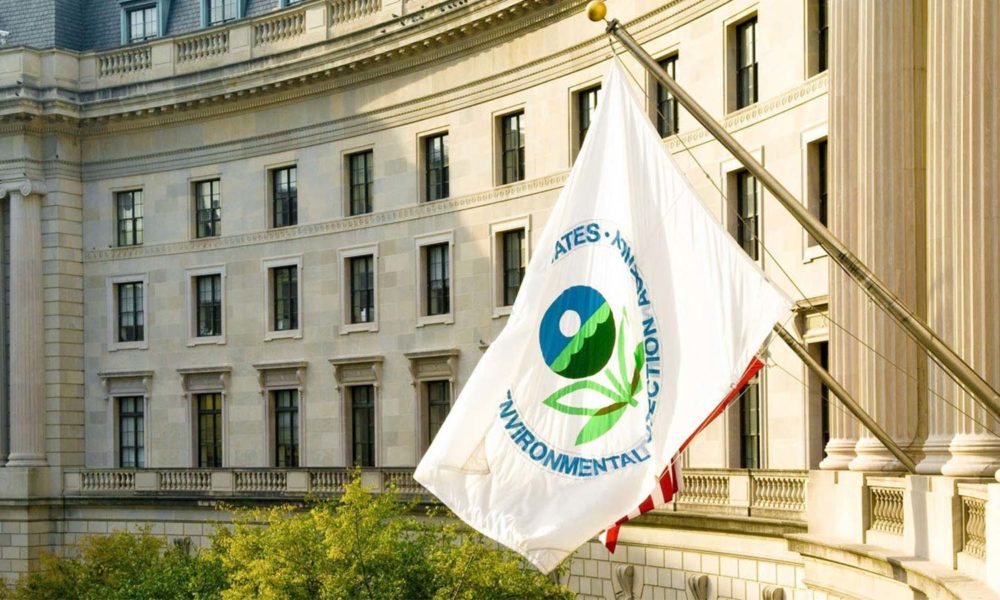Today, we released an analysis that investigated the loss or gain of scientific experts across multiple science-based federal agencies during the past four years. One thing was clear from the analysis—the Environmental Protection Agency (EPA) took a hard hit, losing 672 scientific experts between 2016 and 2020 (see Figure 1). In fact, the EPA’s total workforce was down by 21% in 2018 compared to an all-time peak in staffing at the agency during 2000.

Figure 2. The EPA lost hundreds of scientists during the past four years—on average, 219 scientists per year.
You might be wondering, “why should I care about a loss of scientists at the EPA?”
EPA cannot fulfill its science-based mission
The EPA has a critical science-based mission to “protect public health and our environment.” Scientists at the EPA work to inform numerous policies that protect us all, such as ensuring that we all have clean water to drink and clean air to breathe. The EPA also is charged with making sure that the land we use and live on is not contaminated with toxins that can hurt us or our environment—and when the land has been polluted, the agency works to clean up these messes. The work of the EPA has saved many lives and kept many out of the hospital.
But the EPA cannot fulfill its important mission to protect public health and our environment if it does not have the scientific staff to conduct the needed science to inform its decisions. We got our first indication that the EPA did not have enough scientists to fulfill its science-based mission from a federal scientist survey on scientific integrity that we conducted in 2017 through 2018. At the EPA, when we asked scientific experts if they had “noticed workforce reductions at their agency due to staff departures, retirements, and/or hiring freezes,” over 90 percent (403 respondents) agreed. Of those respondents who noticed workforce reductions, 80 percent (325 respondents) reported that these reductions made it difficult for the EPA to fulfill its science-based mission (Figures 2a, b).

Figure 2. Responses from federal scientists to two survey prompts: “In the past year, I have noticed workforce reductions at my agency due to staff departures, retirements, and/or hiring freezes.” and “Such workforce reductions have made it more difficult for my agency to fulfill its science-based mission.” Across all agencies surveyed, respondents strongly agreed that they had noticed workforce reductions. More than 90 percent of responding federal scientists at the EPA agreed that the agency’s workforce had been reduced over the past year; of those scientists, more than 40 percent strongly agree the reductions have made it more difficult for the EPA to fulfill its mission.
The jobs lost most
In our analysis on scientific capacity at the EPA during 2016-2020, we investigated what kinds of jobs scientific experts lost or gained from the agency were doing to protect public health and our environment. In figure 3 below, you will see the number of scientific experts fulfilling specific jobs that were lost or gained the most from the EPA during 2016-2020.

Figure 3. A number of scientific job categories (called series) at the EPA lost or gained 10 or more employees from FY 2016 to 2020. The EPA lost more than 550 environmental protection specialists (EPS)—nearly a quarter of EPS jobs—and gained nearly 250 jobs in general natural resources management and biological sciences, a 22 percent increase.
Strikingly, we found that more than 500 environmental protection specialists were lost from the agency during 2016-2020. Environmental protection specialists are responsible for working on programs to protect or improve environmental quality, control pollution, remedy environmental damage, or ensure compliance with environmental laws and regulations. They also work on issues such as air and water quality, hazardous waste and materials management, underground storage tanks containing regulated substances (petroleum products, chemicals, and wastes), oil and hazardous substance spills planning, nonhazardous waste management, waste minimization and recycling, and site restoration and remediation. Such positions seem especially important to protecting our health and our environment—and over the past four years more than 500 of these positions were lost!
Other jobs that were lost most at the EPA include environmental engineers, who are responsible for analyzing environmental pollution and planning and designing environmental systems to provide the public with clean air and water, and chemists at the EPA who, among other duties, help to design chemical products and processes that reduce or eliminate the generation of hazardous substances. The EPA also lost 27 ecologists who could have been working to help restore ecosystem functioning such as nutrient cycling or the maintenance of biodiversity. These are all important duties that help protect public health and our environment, yet a significant number of scientists working to fulfill these duties have been lost. The EPA also saw some gains in jobs, although not as many lost, and these positions were mostly affiliated with records and information management.
The Biden administration must address science capacity
President-elect Biden has made it clear that his administration will bring science back to decision-making, and we will be watching to hold him accountable to his word. One of the first steps the Biden administration must take to ensure the public and our environment are protected is to increase the number of scientific experts at the EPA. We find ourselves at a time when people are dying from a novel coronavirus made worse by environmental pollution, with underserved communities hit the hardest. And we also find ourselves racing against time to limit the negative effects already occurring as a result of global climate change. The EPA’s work on issues of environmental justice, air and water pollution, and climate change could not be more important than at this very moment.
We recommend that the Biden administration take several actions to increase scientific capacity and strengthen scientific integrity and science-based decision-making at the EPA. One action is to increase the number of early career scientists in federal scientific positions during the next four years, particularly early career scientists from communities historically underrepresented in these positions. To do this, we recommend that the Biden administration increase the number of scientific fellowships at the EPA through existing programs like the Oak Ridge Institute for Science and Education fellowships. Additionally, the administration should work to provide historically black colleges and universities as well as tribal colleges and universities information needed to successfully apply to federal scientific positions. The Biden administration also should investigate bringing back the successful pilot STEM-specific track for the prestigious Presidential Management Fellowship. The administration also will need to ensure that more senior-level EPA staff are trained and prepared to mentor a new class of scientists coming into the agency.
Federal scientists work hard to benefit our lives and the lives of those we hold most dear to our hearts. The important work ahead of us depends on these civil servants. The Biden administration must work hard to ensure that enough federal scientists exist to serve the public. In stentorian 19th century notes, Louis Pasteur wrote, “Science knows no country, because knowledge belongs to humanity, and is the torch which illuminates the world. Science is the highest personification of the nation because that nation will remain the first which carries the furthest the works of thought and intelligence.” We will never meet our objective to protect public health and our environment or be a great nation by shackling science—let us now work to undo the anti-science animus of the past four years and restore needed safeguards back to our country and to our communities by extending a warm welcome to scientists into our federal agencies.

